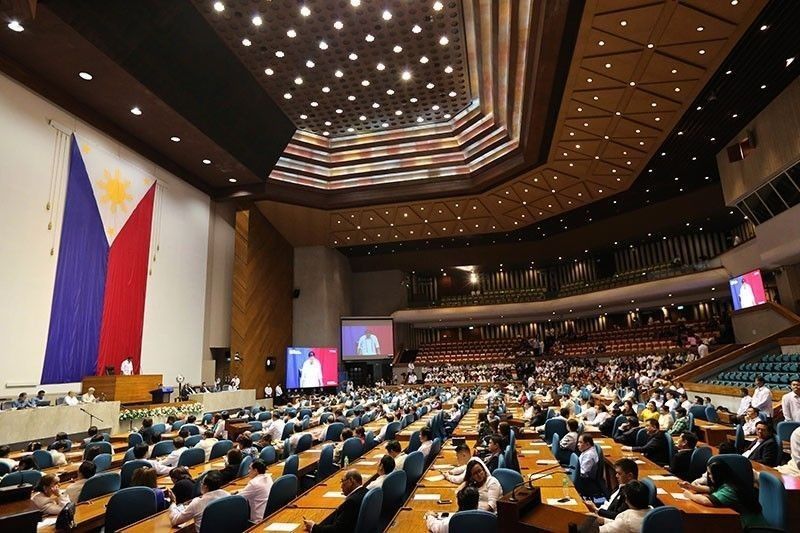House seeks institutionalized response vs nCoV threats

MANILA, Philippines — House leaders are pushing for institutionalized government response on health emergencies amid the threats posed by the novel coronavirus (2019-nCoV) from Wuhan, China.
The call came after a House transportation committee inquiry showed the lack of concrete plans of several agencies to address the threat of 2019-nCoV despite the creation of an inter-agency committee in 2014.
Committee chair and Samar Rep. Edgar Mary Sarmiento said the Palace should come up with a permanent plan in addressing international health threats.
“We don’t have a process... We appeal to the executive to come up with at least a manual or set of guidelines on how government agencies will respond to this kind of situation,” he said during his panel’s motu proprio hearing on the issue last Wednesday.
The executive branch and its health and transportation departments should come up with an official government manual or procedure relevant to international health alerts.
“We should know who is responsible for convening the interagency committee and who chairs it so that we would know automatically what to do just in case something happens. There should also be a set of procedures,” Sarmiento suggested.
Deputy Speaker Mikee Romero said the data and information on the virus should be centralized to avoid public confusion in light of fake news shared over social media.
“The DOH should be the sole source of public health advisories. Many of our countrymen initially believed that this coronavirus is airborne when health officials later clarified that it is transmitted via direct contact,” the 1-Pacman congressman said in an interview.
Cavite Rep. Strike Revilla, for his part, said it is the best time for parents and schools to teach children the importance of proper hygiene.
“We should be more careful and instruct our children to wash hands regularly and practice proper personal hygiene,” he suggested.
For his part, Albay Rep. Joey Salceda proposed in House Bill 6096 the creation of a Center for Disease Control and Prevention (CDCP), which will be tasked to prepare the country’s mitigation of and response to communicable diseases.
“The hazards will always be there but they are rising and becoming more complex. We have always had to contend with microscopic enemies. But the risks have geometrically multiplied by our exposure: tropical climate, leading tourist destination (with 8.4 million in 2019), leading source of overseas labor (12 million overseas Filipino workers in 2019), growing status as work destination for foreign workers (including 280,000 Philippine offshore gaming operator workers),” the House ways and means committee chairman explained in an interview.
HB 6096 also seeks to create a National Health Emergency Response Unit, which shall act as the frontline force in ground and surveillance operations of the CDCP, as well as the mechanisms in declaring the state of a public health emergency.
Speaker Alan Peter Cayetano has given assurance that the government has ample budget to address the threat of 2019-nCoV despite a cut in the budget for disease surveillance of the health department in the 2020 national budget.
He downplayed concerns raised by fellow lawmakers on the decrease in the budget for DOH’s epidemiology and disease surveillance program (EDSP) from P263 million last year to only P115.5 million this year – a 56 percent cut – amid the entry of nCoV to the country.
“As long as it is in the budget, it can be augmented. If there’s need for a study and other preventive measures, the budget can be used right away and we can augment it if it’s not enough,” he told reporters in an interview.
Cayetano added that the government could tap a portion of the P13-billion contingency fund for measures to prevent the entry or, worse, the spread of the disease in the country.
Health Secretary Francisco Duque III told the House plenary last Wednesday that he would make a request for additional funding if needed.
“The health and lives of millions of Filipino people are at stake here. Congress should be ready to approve a supplemental budget to the DOH if necessary,” said Gabriela Rep. Arlene Brosas.
The Kilusang Magbubukid ng Pilipinas said the P1-billion cut in health budget for 2020, shortage of 80,000 primary health workers and lack of health personnel in 25 percent of barangays nationwide have made the country vulnerable to the 2019-nCoV.
It added that the “government is not taking enough proactive and emergency health measures” to protect the country and its people. – With Delon Porcalla, Ding Cervantes
- Latest
- Trending






























